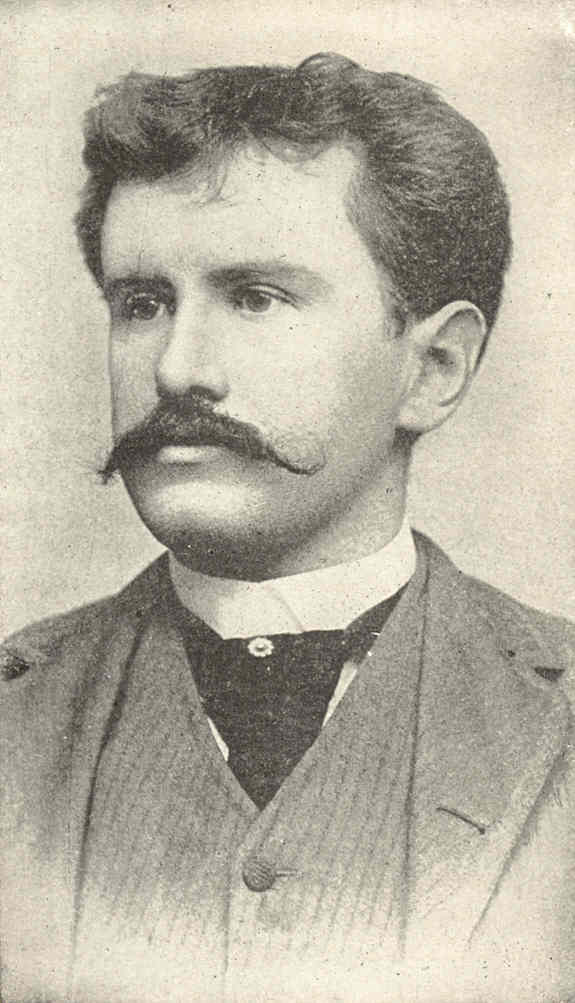William Sydney Porter
William Sydney Porter, writing as O. Henry, wrote in a dry, humorous style and, as in "The Gift of the Magi," often ironically used coincidences and surprise endings. Released from prison in 1902, Porter went to New York, his home and the setting of most of his fiction for the remainder of his life. Writing prodigiously, he went on to become a revered American writer.

O. Henry is famous for writing short stories with a twist ending, such as The Gift of the Magi, The Last Leaf, and The Ransom of Red Chief. I found his real life even more fascinating than his stories! The internet allowed me to read letters to, from, and about him, hear his voice in a radio interview, and see a picture of him and his family. I hope you will enjoy learning about this great author with a "beautiful soul" and help me solve some of the mysteries I came across.
Interesting Facts
HIS BIRTH DATE IS... INTERESTING
William Sidney Porter (later spelled Sydney) was born in Greensboro, N.C., on September 11, 1862. Although it has nothing to do with the terrorist attack, his birth date certainly caught my eye... He loved New York and many of his stories are set in the City.
HE LIVED IN THE SOUTH, IN THE MID-WEST, IN THE NORTH EAST, AND ABROAD
Born in Greensboro, NC, he then moved to a Texas ranch. After being accused of embezzlement by the bank he worked for, he absconded to New Orleans, LA, and then to Honduras. He came back to Austin, TX, to face trial and take care of his wife, Athol, who was terminally ill. He was sentenced to five years in jail at the federal penitentiary in Columbus, OH. Released after three years for good conduct, he joined his daughter Margaret and in-laws in Pittsburgh, PA. He was offered a contract with New York World newspaper, and moved to New York, NY. He lived a short time in Long Island, NY with his second wife, Sara Coleman.

HE STARTED HIS WRITING CAREER WHILE IN JAIL
In jail, Will Porter worked as a pharmacist. He also started writing under the pseudonym of O. Henry. He sent his stories to a friend in New Orleans, who sent them in turn to magazines in New York. Nobody knew these wonderful stories came from a prisoner! Although he went through a tough time - losing his wife to tuberculosis and being sent to jail shortly after - his stories are far from being dark and depressing. In fact, they are light, humorous, surprising, uplifting.
GUILTY OR NOT GUILTY?
Will was working as a teller at the First National Bank of Austin when an examiner came and found discrepancies in his books, although there has been much debate about his actual guilt. The bank was clearly mismanaged, and from what I read, my conclusion is that he just happened to be at the wrong place, at the wrong time.
HIS VOCABULARY AND LITERARY KNOWLEDGE COMPARE TO SHAKESPEARE!
Young Will Porter used to carry an unabridged dictionary and read it as a book. He would look up words he didn't know, and was fascinated by words. His vocabulary skills are sometimes compared to Shakespeare's. Yet, he never attended college and left school at fifteen years old to work for his uncle's drugstore...
His stories are filled with witty expressions, seldom used words, and allusions to other pieces of fiction, such as Shakespeare, greek mythology, Arabian Nights, contemporary "dime novels" (cheap paperback novels of the late 1800's), and Kipling, among others.
He uses dialects in such a way we can almost hear his characters talk. His choice of words and metaphors surprise and delight. In Texas, he learned French, German, and Spanish well enough to use some foreign vocabulary when a story calls for it.

HE POPULARIZED THE "TWIST ENDING"
O. Henry was sometimes called the "American De Maupassant." His stories end with a twist of fate, or a revelation of who his characters really are, or an unexpected turn that surprises and delights, draws tears or laughters - or both - from his readers. Yet, his stories are about ordinary people, in ordinary situations. He tells the story of a hobo, or a grafter, or even a shop girl, in their every day life.
HIS STORIES' THEMES ARE UNIVERSAL
His stories reflect universal values, such as unconditional love, self sacrifice, honor, and compassion. They often have a touch of spirituality, without being religious in nature. They are also nonjudgemental, often portraying characters that are usually ignored in our society, in a respectful way.
Комментариев нет:
Отправить комментарий